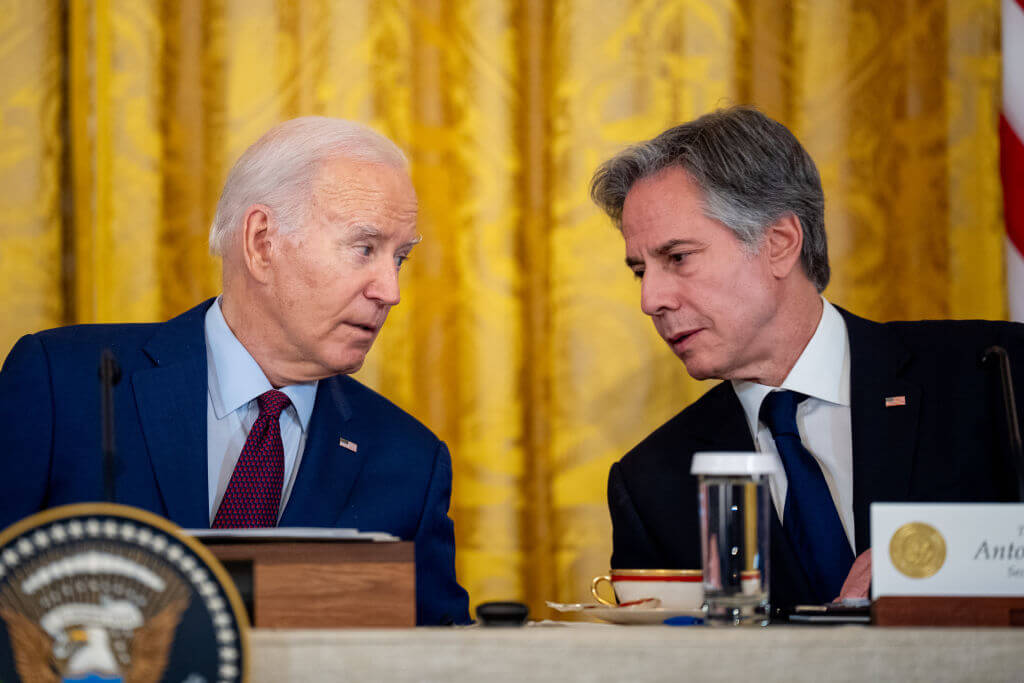Saving the Agency
America’s federated Jewish charities are stumbling into dangerous territory, risking their own mission and the health of the broader Jewish community, as they consider a plan to revamp their funding of international Jewish needs.
The new plan supposedly broadens the reach of the federated charity system and boosts its appeal to donors by allowing more Israeli causes to receive its funding. Unfortunately, the plan is more likely to damage ties between the American Jewish community and Israel, and gravely impair the ability of American Jews to act in unison in the face of threats.
Under the current system, local Jewish community federations around the United States and Canada set aside a share of annual fundraising revenues for overseas needs. The money is sent to a central coordinating agency in New York, United Jewish Communities, which forwards it to two giant organizations: the Jewish Agency for Israel, which operates in the Jewish state, and the American Jewish Joint Distribution Committee, which operates all around the world. The new plan, if approved, would let local federations choose, in consultation with the central agency, to divide their overseas funding among a variety of large and small nonprofits.
Leaders of the federations and UJC present the change as little more than a technicality, but that’s not the whole story. The Jewish Agency and the Joint are a big part of the reason the federated system exists as an effective network of institutions. Cutting them loose is, symbolically and practically, a step toward dissolving the glue that makes American Jewry a national community.
Local federations were formed in the 1890s to cope with the tide of Jewish refugees fleeing Russia. The Joint was created during World War I to speed relief to desperate Jews in war-torn Europe. The Jewish Agency was originally the Jerusalem operations arm of Theodor Herzl’s World Zionist Organization, engaged in building a Jewish state. They joined forces in 1938 to form the United Jewish Appeal, which evolved into the best-known symbol of American Jewish unity.
Within the UJA, the Jewish Agency was the dominant partner, due to the urgency of building Israel. Essentially an offshoot of the Israeli government, it was designated in Israeli law as the formal liaison between Israel and the Diaspora. It set the tone in UJA fundraising and got the lion’s share of revenues.
As its financial and emotional power grew, the UJA-federation network expanded beyond its original fundraising role. It became the arbiter of community priorities, allocating funds for education and culture, brokering cooperation among competing policy and defense organizations and even religious movements.
The partnership began to fray in the 1980s. In response to American calls for reform, the Jewish Agency cut its staff by 90% and replaced old programs with new ones. But the good news never filtered down to most American Jews.
Today’s Jewish donors don’t share their parents’ taste for big institutions to tackle great challenges. Earlier generations saw a gift to the United Jewish Appeal as a sort of tax owed to the Jewish people. Today’s adults feel less sense of obligation to a global Jewish people — and far less love of taxes.
Some say the fate of the Jewish Agency doesn’t matter, that the great Jewish dramas of the 20th century are over. That’s shortsighted. There’s still a need for collective institutions to carry out the Jewish community’s will at the international level no less than at the national and local levels. There’s also a need for accountable institutions to conduct the business of Israel-Diaspora relations, so the task isn’t left to billionaires meeting in back rooms. If the Jewish Agency isn’t doing its job, it must be fixed — not abandoned.

I hope you appreciated this article. Before you go, I’d like to ask you to please support the Forward’s award-winning journalism this Passover.
In this age of misinformation, our work is needed like never before. We report on the news that matters most to American Jews, driven by truth, not ideology.
At a time when newsrooms are closing or cutting back, the Forward has removed its paywall. That means for the first time in our 126-year history, Forward journalism is free to everyone, everywhere. With an ongoing war, rising antisemitism, and a flood of disinformation that may affect the upcoming election, we believe that free and open access to Jewish journalism is imperative.
Readers like you make it all possible. Right now, we’re in the middle of our Passover Pledge Drive and we need 500 people to step up and make a gift to sustain our trustworthy, independent journalism.
Make a gift of any size and become a Forward member today. You’ll support our mission to tell the American Jewish story fully and fairly.
— Rachel Fishman Feddersen, Publisher and CEO
Join our mission to tell the Jewish story fully and fairly.
Our Goal: 500 gifts during our Passover Pledge Drive!























